Mercedes-Benz Group AG is navigating the automotive industry’s evolving landscape with a clear focus on luxury, innovation, and sustainability. Under the leadership of Ola Källenius, the company has refined its marketing strategy to enhance the Mercedes-Benz Brand, ensuring it remains a dominant force in the luxury segment.
The company is accelerating its transformation with rising EV demand, shifting consumer preferences, and increasing competition from rivals like General Motors. Mercedes-Benz is expanding its market share by focusing on luxury segments, launching high-performance EVs, and strengthening its presence in emerging markets.
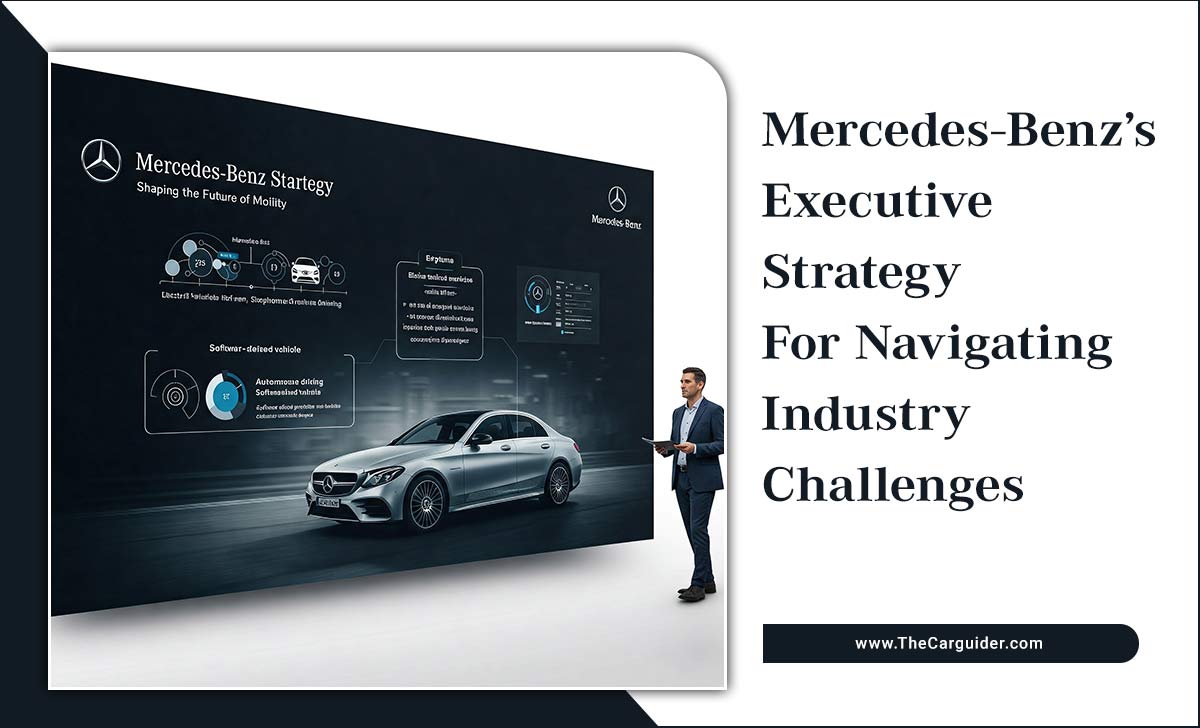
SWOT Analysis Overview & Strategy Insights
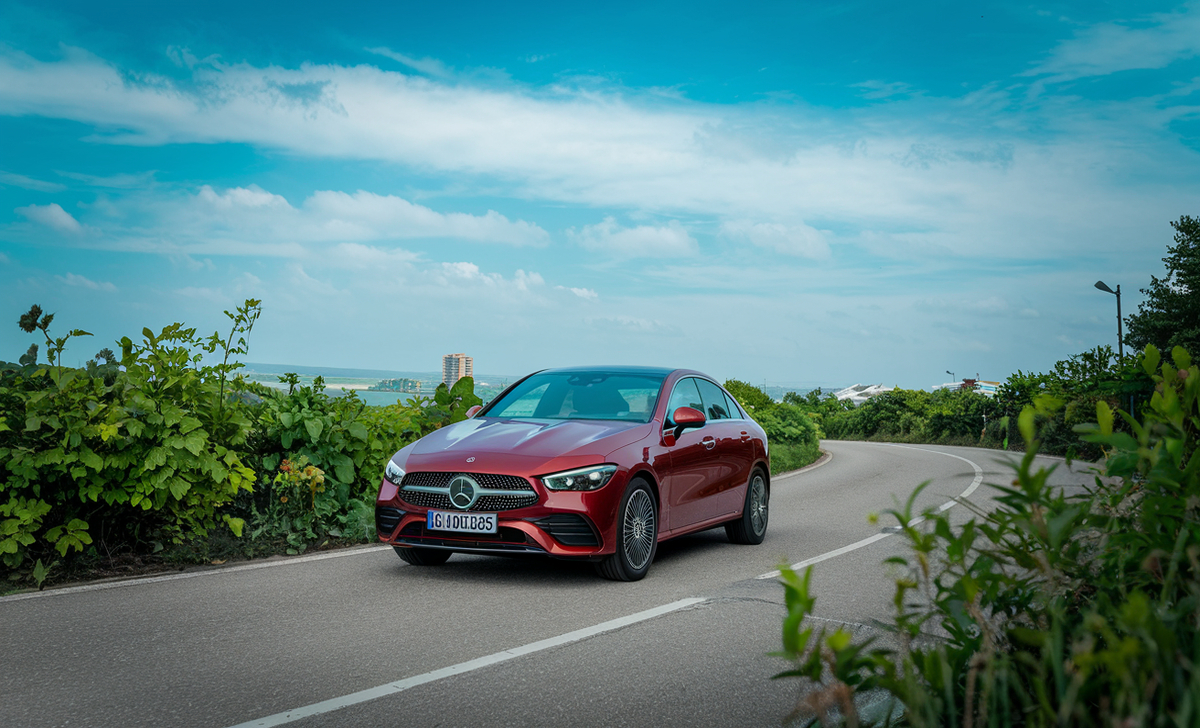
Mercedes-Benz’s executive strategy for navigating industry challenges focuses on luxury, innovation, and sustainability. The company is doubling down on high-margin vehicles, advancing electric mobility, and integrating cutting-edge technology to maintain its leadership position.
Mercedes-Benz Mobility plays a critical role in the company’s financial strategy by offering flexible financing, leasing, and subscription models to improve accessibility for customers.
Strengths
- Brand Heritage and Its Impact: Mercedes-Benz has a long-standing reputation for quality, engineering excellence, and luxury.
- Diverse Product Portfolio: The company offers a broad range of Mercedes-Benz Cars, from high-performance AMG models to sustainable EQ brand electric vehicles.
- Commitment to Innovation: Mercedes-Benz continues to lead in technological advancement, including artificial intelligence, autonomous driving, and sustainable mobility.
Weaknesses
- Perceptions of Luxury Affordability: Some consumers view Mercedes-Benz as exclusive and expensive, which limits accessibility.
- Limited Presence in the EV Market: While expanding its electric models, Mercedes-Benz still faces tough competition from Tesla and traditional automakers.
Opportunities
Mercedes-Benz’s commitment to electric mobility is reflected in its goal to go fully electric in key markets by 2030. The company is investing in battery technology, charging infrastructure, and EV-specific architectures. Mercedes-Benz is expanding its EQ brand by introducing a wide range of electric models, from luxury sedans to SUVs, while ensuring cutting-edge design and technology in each vehicle.
- Expansion of Electric Vehicle Lineup: The company is aggressively investing in its EQ brand to compete in the growing electric mobility sector.
- Integration of Advanced Technologies: The adoption of generative AI, MB.OS, and other innovations enhances the customer experience.
- Focus on Sustainability: Mercedes-Benz’s commitment to carbon neutrality by 2039 aligns with global market trends and regulations.
- Enhancing Customer Loyalty: Investing in customer satisfaction programs and digital engagement to strengthen customer engagement and retention.
Threats
- Increasing Competition: Rival brands like General Motors and Tesla continue to innovate, challenging Mercedes-Benz’s market share.
- Supply Chain Challenges: Global shortages of key materials impact production and revenue.
- Regulatory Pressures: Stricter emissions regulations require constant adaptation and investment in sustainable business strategy.
Strengthening Mercedes-Benz’s Luxury Brand Positioning
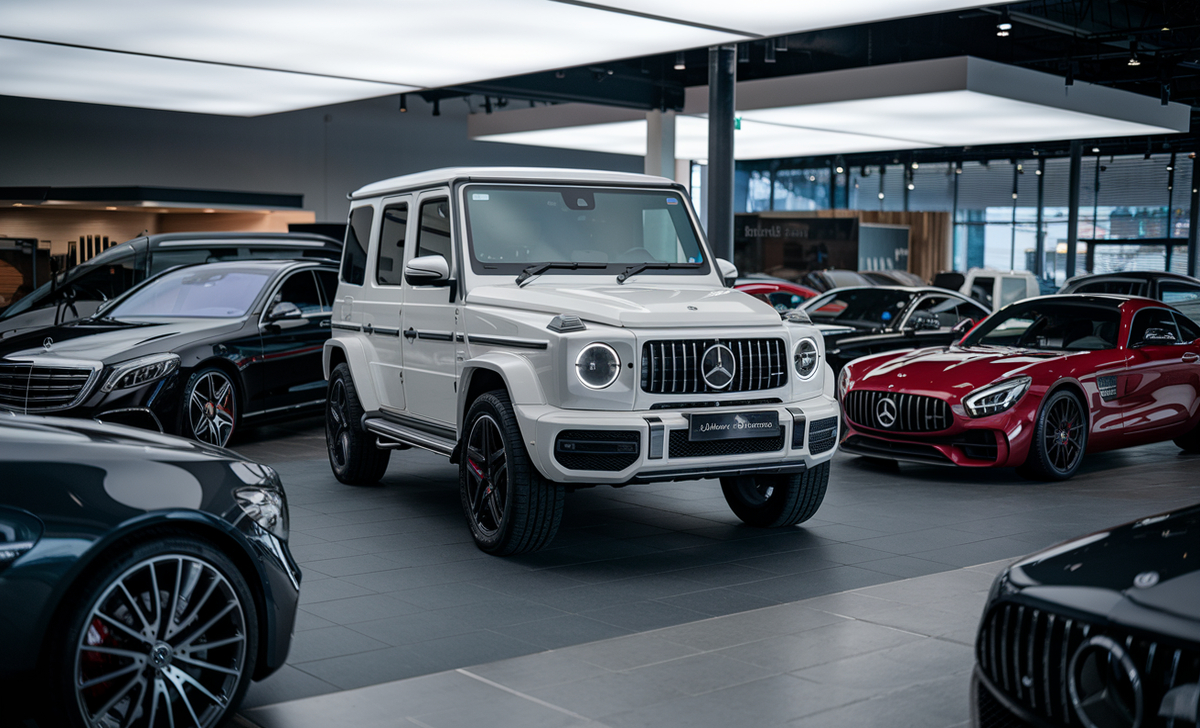
The Mercedes-Benz Group is focused on reinforcing its identity as a luxury brand, prioritizing high-margin Mercedes-Benz Cars over volume sales. The company’s strategy revolves around the expansion of its elite sub-brands, including AMG, Maybach, the G-Class, and the EQ brand.
This profitable growth model caters to Mercedes-Benz customers seeking premium experiences, ensuring strong customer engagement and long-term customer loyalty.
Key elements of this approach include:
- Exclusive model launches with advanced technological innovation.
- Bespoke customer experience programs that cater to high-net-worth individuals.
- Customer satisfaction initiatives that reinforce brand desirability.
Mercedes-Benz is strengthening its luxury brand positioning by focusing on exclusive, high-end vehicles rather than mass-market sales. It is expanding premium sub-brands like AMG, Maybach, and the EQ series while enhancing personalized customer experiences.
Mercedes-Benz’s Commitment To Electric Mobility And Sustainability
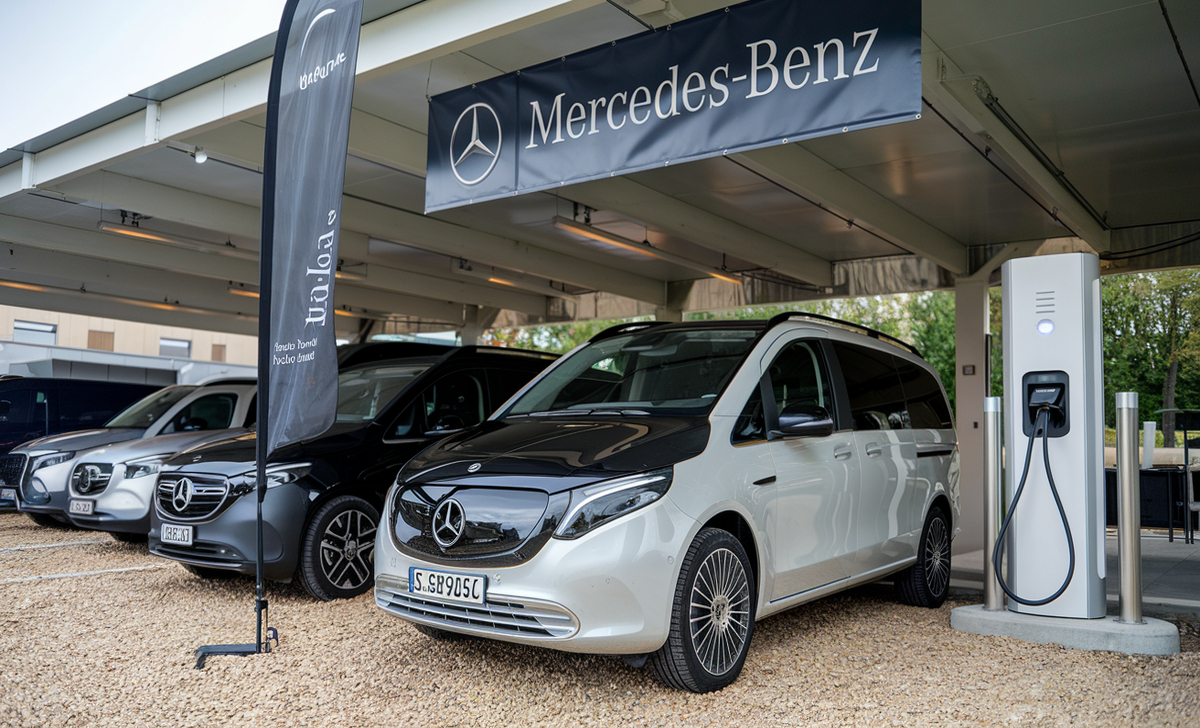
The shift toward sustainable mobility is central to Mercedes-Benz’s commitment to future growth. With increasing pressure to reduce carbon emissions, the company is investing substantially in electric models and battery technology. The development of dedicated EV architectures supports a robust pipeline of future vehicles.
Notable strategies include:
- Expanding the EQ brand to introduce new electric models across all segments.
- Investing in next-gen battery efficiency and technological advancement.
- Partnering with infrastructure providers to expand global charging networks.
Mercedes-Benz aims for a sustainable business strategy. This vision aligns with market expectations for greener vehicles while ensuring compliance with international regulations. Mercedes-Benz plans to achieve full carbon neutrality by 2039. This includes making its production facilities, supply chains, and vehicles more sustainable.
The Role Of Digital Transformation And Artificial Intelligence
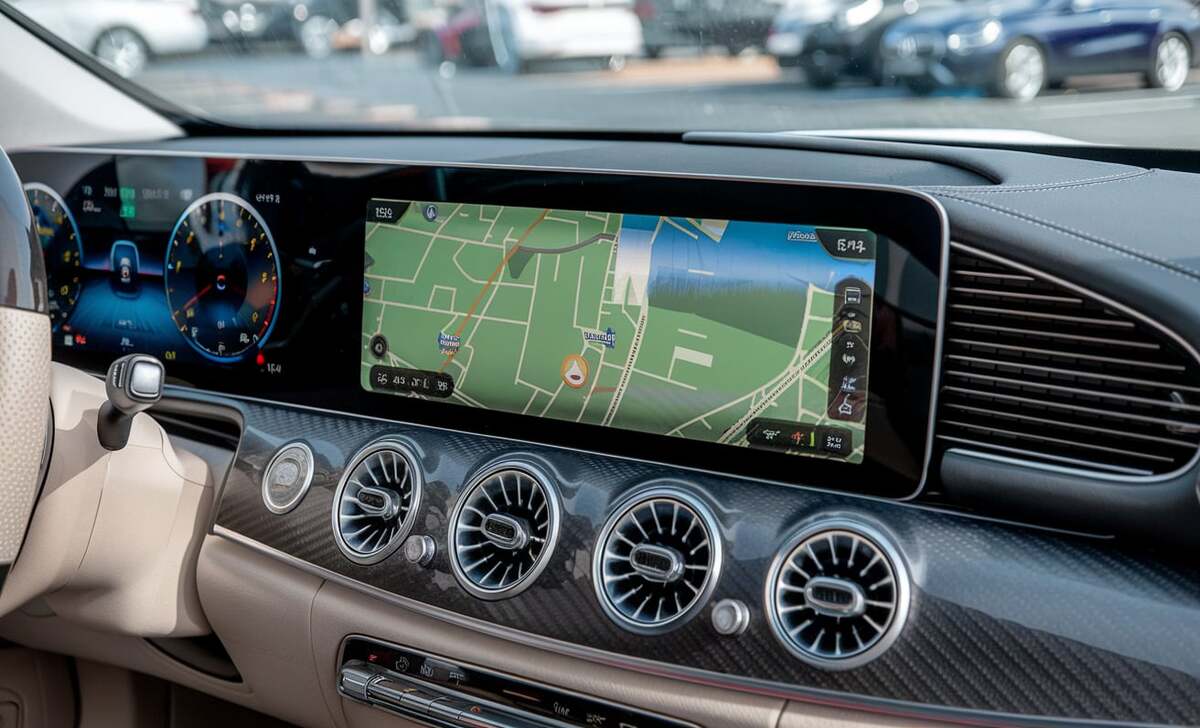
The modern automotive sector is heavily influenced by technological innovation, and Mercedes-Benz AG is at the forefront of this digital shift. The introduction of MB.OS (Mercedes-Benz Operating System) underscores the brand’s focus on generative AI, connectivity, and autonomous driving.
Key advancements include:
- AI-driven customer interactions for enhanced customer needs recognition.
- Smart vehicle software that improves customer experience.
- The integration of artificial intelligence to optimize customer engagement and vehicle safety.
These advancements contribute to Mercedes-Benz’s competitive edge in the evolving automotive industry, enabling seamless, tech-driven consumer interactions.
Overcoming Supply Chain Challenges And Market Adaptation
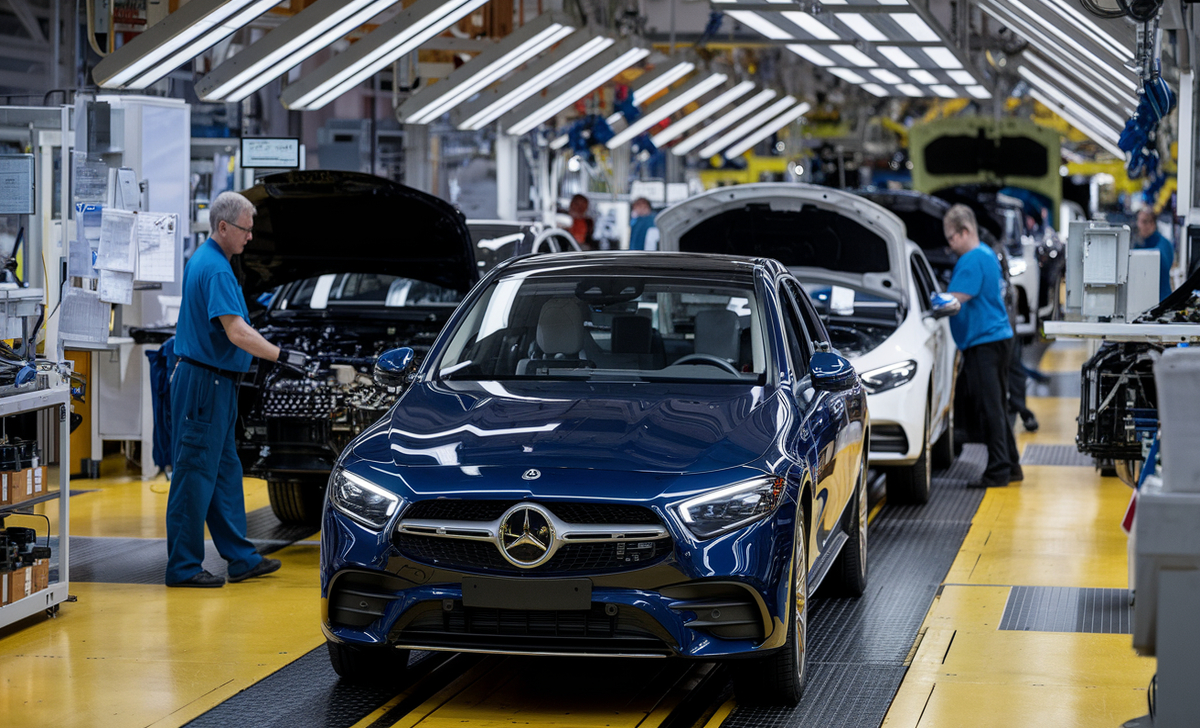
Like many automakers, Mercedes-Benz Group AG has faced significant challenges in global supply chains, particularly in securing semiconductors and raw materials. To counter these disruptions, the company has implemented:
- Resilient supply chain strategies to reduce reliance on single-source suppliers.
- Smart manufacturing processes driven by cutting-edge technology.
- Partnerships with global stakeholders to enhance production efficiency.
Mercedes-Benz is overcoming semiconductor and raw material shortages by diversifying suppliers, securing long-term contracts, and investing in local production capabilities. Additionally, with growing opportunities in emerging markets, Mercedes-Benz Mobility is expanding its footprint in high-growth regions, further diversifying its revenue streams.
Enhancing Financial Services And Revenue Streams
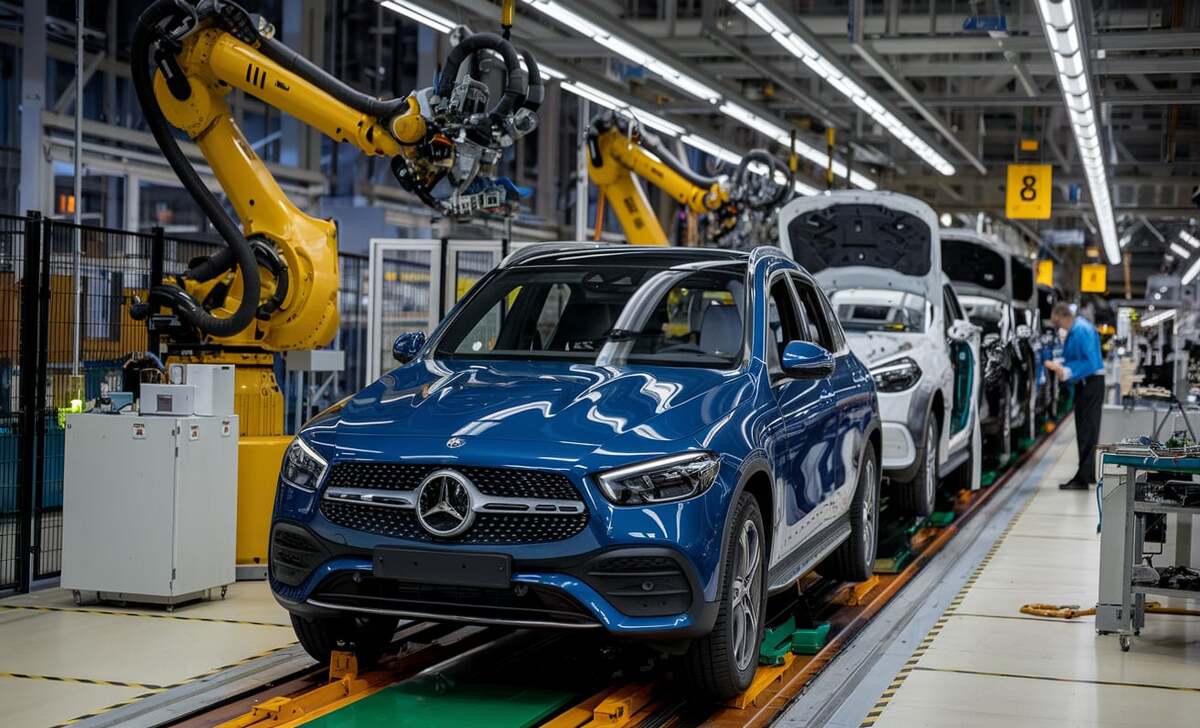
Mercedes-Benz Mobility plays a crucial role in the brand’s long-term financial health. The company is optimizing its financial services by:
- Offering flexible financing and leasing solutions to cater to varying consumer preferences.
- Enhancing digital payment and ownership models for Mercedes-Benz customers.
- Expanding subscription-based models to create additional revenue streams.
These strategic initiatives ensure continued financial stability while aligning with evolving market trends.
Market Share Expansion And Competitive Positioning
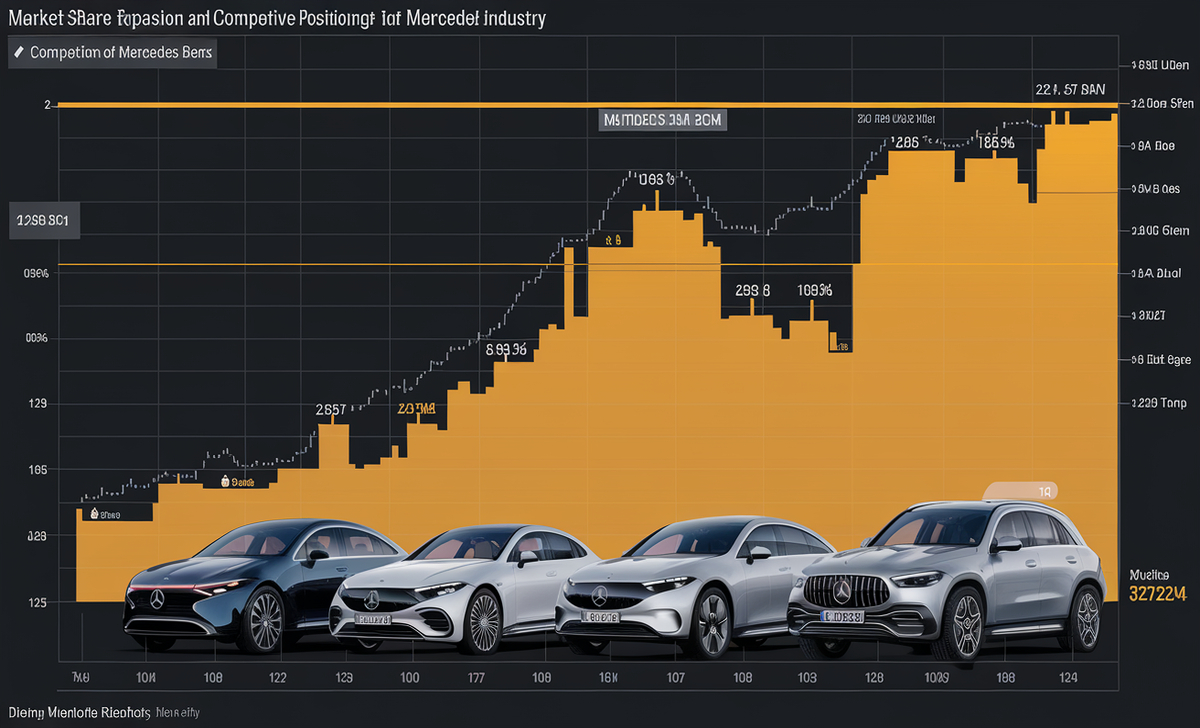
To strengthen its market share, Mercedes-Benz AG is aggressively expanding its presence in both traditional and new segments. Mercedes-Benz is expanding its market presence in emerging economies and high-growth regions, particularly in Asia, South America, and the Middle East, where demand for luxury EVs is increasing.
Balancing exclusivity and market access is crucial for Mercedes-Benz’s success because it allows the brand to maintain its luxury identity while strategically expanding to new customer bases.
Key strategies include:
- Competing with General Motors and other luxury brands in the electric mobility space.
- Targeting commercial vehicles to serve fleet and business customers.
- Adapting its marketing strategy to highlight the superior quality of its vehicles.
Mercedes-Benz is targeting high-net-worth individuals, tech-savvy consumers, and environmentally conscious buyers as it expands its market presence. By balancing exclusivity with broader market access, Mercedes-Benz Group ensures sustainable growth in a competitive landscape.
Conclusion
Mercedes-Benz stays ahead by adapting to industry changes with smart strategies. It focuses on luxury, innovation, and customer needs. The company leads in both premium vehicles and electric mobility.
With Ola Källenius at the helm, Mercedes-Benz Group AG continues to prioritize sustainability, customer loyalty, and profitable growth. Mercedes-Benz is competing with General Motors and other luxury brands by differentiating itself through superior design, cutting-edge technology, and premium ownership experiences.
Frequently Asked Questions
1.Who Is Leading Mercedes-Benz Group AG’s Transformation?
Ola Källenius, the Mercedes-Benz CEO, is leading the company’s transformation. His leadership emphasizes a shift toward electric mobility, digitalization, and sustainability, ensuring the brand stays competitive in the evolving automotive industry.
2.How Is Ola Källenius Shaping The Future Of Mercedes-Benz?
Ola Källenius is shaping the future of Mercedes-Benz by prioritizing electrification, AI-driven technology, and luxury brand positioning. His vision includes achieving full carbon neutrality by 2039 while maintaining the brand’s prestige.
3.Which Sub-Brands Are Mercedes-Benz Focusing On For Growth?
Mercedes-Benz is focusing on AMG, Maybach, the G-Class, and EQ models to drive growth. These brands cater to high-net-worth individuals seeking exclusivity, performance, and advanced technology.
4.How Does Mercedes-Benz Ensure Strong Customer Engagement And Loyalty?
Mercedes-Benz ensures strong customer engagement and loyalty through bespoke luxury experiences, premium concierge services, and cutting-edge digital interfaces that enhance the ownership experience.
5.How Is Mercedes-Benz Investing In Battery Technology For Electric Vehicles?
Mercedes-Benz is investing in battery technology for electric vehicles by developing next-generation batteries with higher efficiency, longer range, and faster charging capabilities. The company is also exploring solid-state battery advancements.
6.What Sustainability Goals Has Mercedes-Benz Set For The Future?
Mercedes-Benz has set sustainability goals that include reducing carbon emissions, adopting green manufacturing processes, and achieving full carbon neutrality by 2039.
7.What Technological Advancements Is Mercedes-Benz Implementing In Its Vehicles?
Mercedes-Benz is implementing AI-driven interactions, autonomous driving capabilities, and over-the-air software updates to improve vehicle performance and customer experience.
8.Why Is AI-Driven Customer Interaction Important For Mercedes-Benz?
AI-driven customer interaction is important for Mercedes-Benz because it enhances personalization, improves vehicle safety, and provides real-time assistance through voice commands and predictive analytics.
9.What Challenges Has Mercedes-Benz Faced In The Global Supply Chain?
Mercedes-Benz has faced global supply chain challenges such as semiconductor shortages, raw material delays, and logistics disruptions, all of which have affected production schedules.
10.What Strategies Has Mercedes-Benz Adopted To Improve Supply Chain Resilience?
Mercedes-Benz has adopted a multi-source supplier approach, smart manufacturing processes, and AI-driven supply chain management to improve resilience.
11.How Is Mercedes-Benz Adapting Its Financial Services To Changing Consumer Preferences?
Mercedes-Benz is adapting its financial services by enhancing digital transactions, introducing subscription-based ownership, and expanding leasing options.
12.What Subscription-Based Models Has Mercedes-Benz Introduced?
Mercedes-Benz has introduced subscription-based models that allow customers to switch between vehicles, access premium services, and pay for features on demand.
13.Why Is Digital Payment Integration Important For Mercedes-Benz’s Future Growth?
Digital payment integration is important for Mercedes-Benz’s future growth because it simplifies transactions, enhances customer convenience, and supports the transition to digital car ownership models.